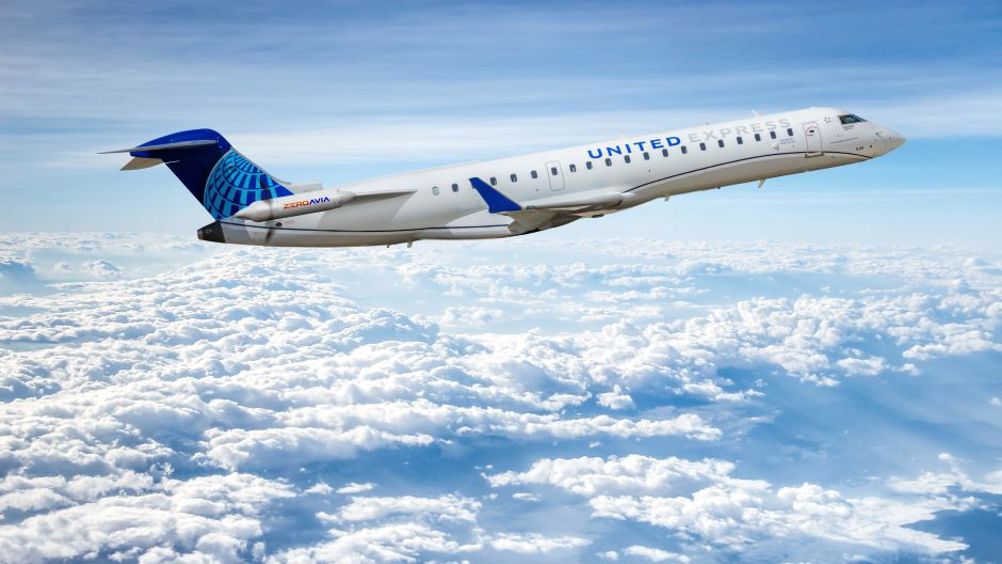United takes next step toward commercial hydrogen flight
US airline company United Airlines has taken an equity stake in UK based hydrogen-electric aviation specialist ZeroAvia.

The deal - part of United’s push to eliminate greenhouse gas emissions by 2050 - makes it the largest airliner to invest in hydrogen-electric engines for regional aircraft.
United expects to buy up to 100 of the ZeroAvia’s ZA2000-RJ hydrogen-electric engines which could be retrofitted to existing aircraft as early as 2028. According to a company statement one potential use is on its CRJ-550, 50-seater aircraft.
Hydrogen-electric engines use electricity created by a chemical reaction in a fuel cell to power an electric motor instead of burning fossil fuel. Because no fuel is burned, there are no climate-harming emissions or carbon released into the atmosphere when the engines are operated.
The ZA2000-RJ is expected to be used in pairs as a new power source for existing regional aircraft. Under the agreement with United Airlines Ventures, United will pursue a conditional purchase agreement for 50 ZeroAvia ZA2000-RJ engines, with an option for 50 more, enough for up to 50 twin-engine aircraft which would be operated by United Express partners once they are fully developed and certified by regulators as soon as 2028.
Register now to continue reading
Thanks for visiting The Engineer. You’ve now reached your monthly limit of news stories. Register for free to unlock unlimited access to all of our news coverage, as well as premium content including opinion, in-depth features and special reports.
Benefits of registering
-
In-depth insights and coverage of key emerging trends
-
Unrestricted access to special reports throughout the year
-
Daily technology news delivered straight to your inbox










Water Sector Talent Exodus Could Cripple The Sector
Well let´s do a little experiment. My last (10.4.25) half-yearly water/waste water bill from Severn Trent was £98.29. How much does not-for-profit Dŵr...